At the Crossroads of Innovation: Embracing AI to Foster Deep Learning in the College Classroom
Educause
JULY 17, 2024
How can we, as educators, accept this change and use it to help our students learn? AI is here to stay.
This site uses cookies to improve your experience. To help us insure we adhere to various privacy regulations, please select your country/region of residence. If you do not select a country, we will assume you are from the United States. Select your Cookie Settings or view our Privacy Policy and Terms of Use.
Cookies and similar technologies are used on this website for proper function of the website, for tracking performance analytics and for marketing purposes. We and some of our third-party providers may use cookie data for various purposes. Please review the cookie settings below and choose your preference.
Used for the proper function of the website
Used for monitoring website traffic and interactions
Cookies and similar technologies are used on this website for proper function of the website, for tracking performance analytics and for marketing purposes. We and some of our third-party providers may use cookie data for various purposes. Please review the cookie settings below and choose your preference.

Educause
JULY 17, 2024
How can we, as educators, accept this change and use it to help our students learn? AI is here to stay.

Faculty Focus
MARCH 30, 2025
Artificial intelligence (AI) has transitioned from a speculative concept to a transformative tool in higher education, particularly within community colleges. Drawing on the scholarship of teaching and learning (SoTL), it argues that AI can enhance accessibility and efficiency while preserving the human essence of education.
This site is protected by reCAPTCHA and the Google Privacy Policy and Terms of Service apply.
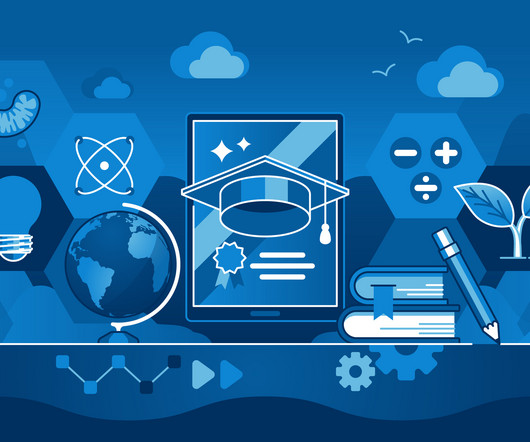
Faculty Focus
FEBRUARY 11, 2025
Banning AI use in college classrooms is a pointless and exhausting endeavor. Instead, we should learn alongside our students to become AI literate. She said that completing the packet was optional, but only if completed would her students earn their pen license and move from years of pencil use to the holy grail , ink.
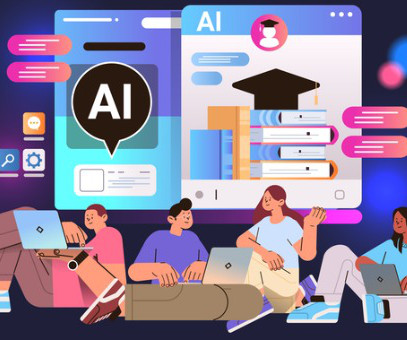
Faculty Focus
MAY 21, 2024
AI-generated content may include irrelevant information because deep learning models can produce outcomes that initially appear coherent but lack depth (Cano et al. AI outputs are not infallible and do produce “hallucinations” – incorrect information presented as fact. ” Education Sciences 13, no.

University Business
FEBRUARY 11, 2025
As colleges and universities consider these issues, note that “artificial intelligence” generally encompasses a broad range of technologies and systems designed to perform tasks that typically require human intelligence, such as learning, reasoning, and problem-solving; AI systems like this are not new or uncommon.
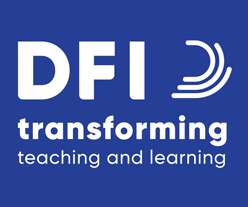
Deans for Impact
AUGUST 9, 2022
In this episode, you’ll hear from: Andrea Foster , Professor, College of Education, Sam Houston State University. Shannon Hammond , Assistant Professor of Special Education, College of Education, National Louis University. Part of effortful thinking is making sure all activities promote deep learning and meaningfully engage students.
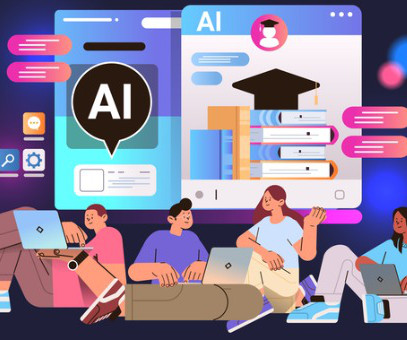
Faculty Focus
MAY 21, 2024
AI-generated content may include irrelevant information because deep learning models can produce outcomes that initially appear coherent but lack depth (Cano et al. AI outputs are not infallible and do produce “hallucinations” – incorrect information presented as fact. ” Education Sciences 13, no.

Liaison International
SEPTEMBER 26, 2024
The landscape of higher education is evolving rapidly, driven in large by part by the ability of artificial intelligence (AI) to reshape the way colleges and universities operate, from personalized learning experiences to enhancing administrative efficiency.

Diverse: Issues in Higher Education
OCTOBER 31, 2023
That’s because he studied abroad with our School for International Training program in Kenya as a college student over 30 years ago. Through a service-learning summer program in Ghana, I gained knowledge about West African history, culture and sustainable design. State Department’s annual Open Doors report showed only 2.4% of all U.S.
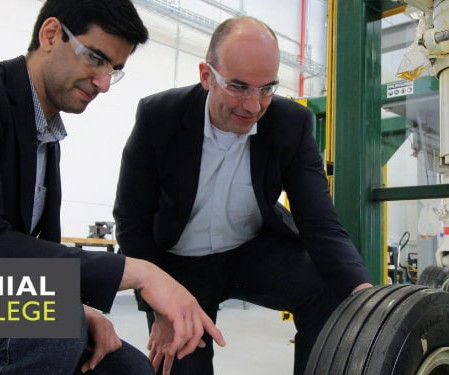
The PIE News
FEBRUARY 22, 2024
Canada is home to 318 billion trees and a vast array of colleges, universities, polytechnics and other institutes of higher learning – proof that it’s a fertile land for growth. College and university models of applied research differ significantly. Some 600 students are presently involved in paid applied research activity.

Faculty Focus
MARCH 30, 2025
Artificial intelligence (AI) has transitioned from a speculative concept to a transformative tool in higher education, particularly within community colleges. Drawing on the scholarship of teaching and learning (SoTL), it argues that AI can enhance accessibility and efficiency while preserving the human essence of education.
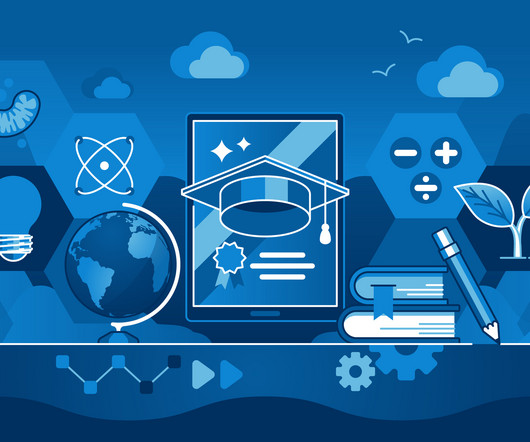
Faculty Focus
FEBRUARY 11, 2025
Banning AI use in college classrooms is a pointless and exhausting endeavor. Instead, we should learn alongside our students to become AI literate. She said that completing the packet was optional, but only if completed would her students earn their pen license and move from years of pencil use to the holy grail , ink.

HEPI
APRIL 30, 2024
At the University of Manchester, significant investments have been made to better understand AI modelling, deep learning, ethics and security. Universities should be well placed to engage in research and education to develop strategies for mitigating these risks.

Faculty Focus
OCTOBER 11, 2022
It has been estimated that college students across the globe devote in excess of a billion hours per year to “disposable” assignments (Wiley, 2016). As soon as the material is assessed, it is no longer significant, and what has been learned quickly drops out of memory (Zull, 2002). What a waste! Barkley, E. San Francisco: Jossey-Bass.

Diverse: Issues in Higher Education
JULY 29, 2024
In April, Dr. Aaron Thompson, president of the Kentucky Council on Postsecondary Education (CPE), participated in the Attaining College Excellence and Equity Summit put together by the U.S. CPE is a coordinating board that oversees Kentucky’s public universities, community colleges, and technical colleges.

Faculty Focus
APRIL 11, 2023
In the college environment an intent to persist is needed, and by promoting resiliency in such a way students are encouraged to understand that their own free will and mindset largely influence their success. Overall, my top three recommended practices include: self-regulating strategies, video-based learning, and formative assessments.

Coursera blog
DECEMBER 19, 2023
Seamlessly transfer up to 84 credit hours —including prior learning on Coursera— to complete your degree faster The B.A.A.S. program at UNT accepts traditional common core credits earned from community colleges (American history, political science, English, etc.) or other universities. But what makes the B.A.A.S The UNT B.A.A.S

Faculty Focus
APRIL 11, 2023
In the college environment an intent to persist is needed, and by promoting resiliency in such a way students are encouraged to understand that their own free will and mindset largely influence their success. Overall, my top three recommended practices include: self-regulating strategies, video-based learning, and formative assessments.

Faculty Focus
JANUARY 23, 2024
A student who has attained cognitive engagement will be able to constructively apply their new knowledge, understanding, and skills while critically thinking in learning. Cognitive engagement can be displayed through deep learning, self-regulation, and understanding of the material that has been discussed during the course (Hollister et al.,

Inside Higher Ed
DECEMBER 6, 2022
Shared governance stands in the way, even though it is conceivable, in theory, to measure student persistence within a particular discipline and student performance in subsequent classes (performance measures that some for-profit colleges actually use). Therefore, colleges and universities need to be more enterprising.

Faculty Focus
OCTOBER 6, 2022
In face-to-face courses, learning is compartmentalized into blocks that meet a prescribed number of times per week across the term or semester. It effectively facilitates sequenced and accretive design but regularly loses opportunities to maximize deep learning between class units.

Inside Higher Ed
DECEMBER 7, 2022
The purpose of college, she eloquently argues, is “to carve out space for intellectual endeavors that don’t have obvious metrics or market value.” Deep learning is inherently a difficult and demanding process.

Faculty Focus
MARCH 26, 2024
From designing custom art images to creating “Soundful: AI Music Generator” songs and videos to interacting with historical figures through “Hello History” fun chats, AI has the capability to boost education and deep learning. Students want to explore subject areas and find meaning. Good fortune came.

Faculty Focus
MARCH 3, 2024
Historically Black Colleges and Universities (HBCUs) stand out for recognizing that every student deserves access to quality education and are also centers for research and innovation (TEConomy, 2022). How College Contributes to Workforce Success: Employer Views on What Matters Most. Association of American Colleges and Universities.

WCET Frontiers
JANUARY 5, 2023
Neural networks and deep learning: Neural networks are, simply put, computer networks that are built in such a way as to mimic the human brain with each node leading to other nodes, much as the brain is a complex collection of networked neurons. In high school and college they teach kids to do some of their homework on slide rules.

Inside Higher Ed
SEPTEMBER 30, 2022
On the AI subtopic of deep learning alone, more than one preprint was submitted every hour—a 1,064-fold increase from the 1994 rate. “As data-hungry models become the dominant trend in deep learning, what we see is that that incentivizes a certain kind of social phenomenon,” Vallor said.

Faculty Focus
MARCH 3, 2024
Historically Black Colleges and Universities (HBCUs) stand out for recognizing that every student deserves access to quality education and are also centers for research and innovation (TEConomy, 2022). How College Contributes to Workforce Success: Employer Views on What Matters Most. Association of American Colleges and Universities.
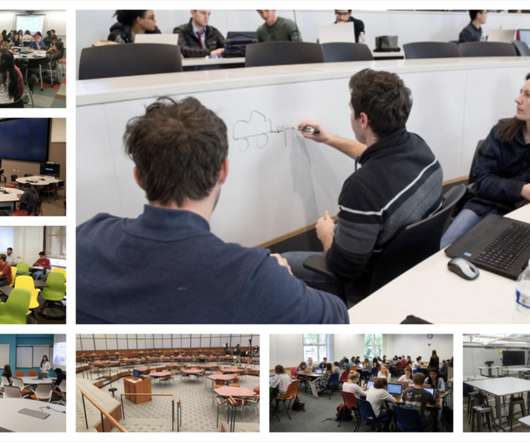
Inside Higher Ed
SEPTEMBER 16, 2022
These are positive developments from the perspective of groups such as the Association of American Universities and the American Association of Colleges and Universities, which promote high-impact practices that increase student engagement and deep learning. Yet the growth of active learning spaces remains incremental.

Faculty Focus
MAY 16, 2023
As computer processing power continued to increase, it became possible to train increasingly complex and sophisticated AI algorithms; enabling AI to move from a basic rule-based system to a more advanced machine learning and deep-learning model. This forward move will not be reversed.

Faculty Focus
JANUARY 23, 2024
A student who has attained cognitive engagement will be able to constructively apply their new knowledge, understanding, and skills while critically thinking in learning. Cognitive engagement can be displayed through deep learning, self-regulation, and understanding of the material that has been discussed during the course (Hollister et al.,
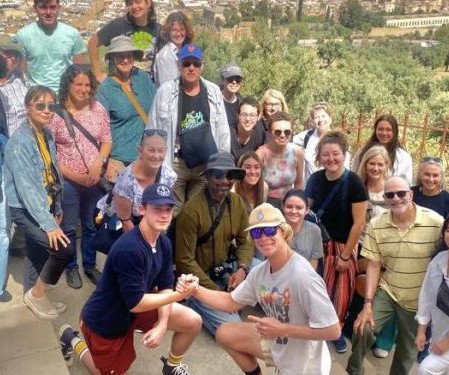
The PIE News
MAY 16, 2023
This unique community is composed of university students from across the globe who receive college credit from SAS/ISE academic partner Colorado State University. There are also gap year students and high school seniors who have enough credits to graduate early and study abroad.

Inside Higher Ed
JANUARY 4, 2023
For example, students taking a shortcut to a grade in order to avoid the longer journey through learning is not a new phenomenon. Assertion number three: Most students want to learn, but school is not necessarily a place where learning is important. ” That key, according to Malesic is, “A simple willingness to learn.”

Inside Higher Ed
MARCH 14, 2023
As a researcher in the areas of artificial intelligence and machine learning, I wanted to make sure the new MSCS degree program had a strong framework of courses in machine learning, deep learning, natural language processing and other core AI topics, along with course offerings in application and theory.

Faculty Focus
MAY 16, 2023
As computer processing power continued to increase, it became possible to train increasingly complex and sophisticated AI algorithms; enabling AI to move from a basic rule-based system to a more advanced machine learning and deep-learning model. This forward move will not be reversed.

EAB
JUNE 8, 2023
Since then, individual colleges and departments have tailored AI courses to their specific needs and disciplines. 7 pitfalls to avoid in your AI strategy Read our blog to learn how higher education leaders can avoid initial missteps in their AI approach.

Susquehanna President's Blog
DECEMBER 12, 2021
Good Questions Our oldest niece is college shopping. Here are a few of those question and some additional considerations for soon-to-be college students and their families. Adjuncts are a valuable resource for colleges and universities. Lower student-faculty ratios increase individualized learning opportunities.
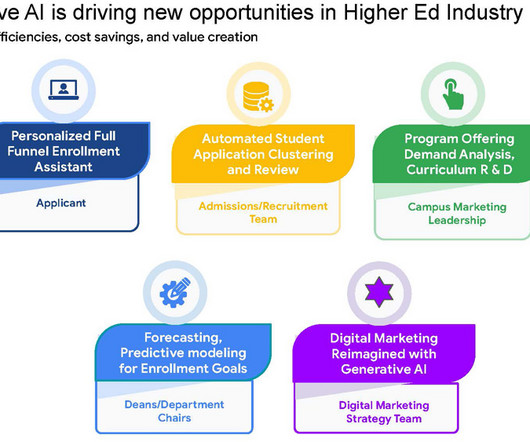
Helix Education
SEPTEMBER 28, 2023
The following reflects these conversations, and I seek to align them with my thoughts envisioning how Gen AI, machine learning, and deep learning can tackle these hurdles. Gen AI-powered analytics can help university leadership gather meaningful insights to identify programs in which students are most likely to enroll.

EAB
DECEMBER 4, 2023
Advanced build features Ability to self-optimize Incorporation of deep-learning neural networks Use of automated statistical analysis Training on hugely massive data sets The Opportunities of AI At EAB, we have been powering our Advancement Marketing Services (AMS) partners’ annual giving programs with AI for years.

University Business
MARCH 20, 2024
Higher ed leaders have been warned about the deep learning setbacks K12 students experienced during the pandemic, which trickled down all the way to the elementary level. Remote learning, catalyzed by quarantine mandates during the pandemic, is a key driver of K12 students’ current academic declines, The New York Times reports.

Inside Higher Ed
JANUARY 10, 2023
That high-performing Black and Hispanic students are far less likely to earn a college degree than comparable white or Asian American students. That the main contributor to college’s rising college costs isn’t the cost of instruction, which has stagnated.

Inside Higher Ed
JANUARY 2, 2023
Blog: Higher Ed Gamma A Gallup and Purdue poll of 30,000 college grads from 2014 found that students who had a rich, robust relationship with a faculty member were twice as likely as peer graduates to report high levels of well-being. But only 14 percent of graduates said they had experienced such a relationship. ” Absolutely true.

University Business
JANUARY 6, 2025
AI encompasses a huge variety of algorithms that range from simple, rule-based systems to hugely complex, deep-learning models. Today, colleges and universities too often tend to treat all AI tools as the same, in part because too many people making decisions about the technology do not know exactly how it works.

Higher Education Inquirer
OCTOBER 2, 2024
The implications for the broader society within which colleges and universities exist – that’s a subject for another post. Later on in the book, the Department of Labor section section also calls on Congress to end college degree requirements for federal positions. Today I’d like to sum up what we found. I’ll break them down here.
Expert insights. Personalized for you.
We have resent the email to
Are you sure you want to cancel your subscriptions?


Let's personalize your content